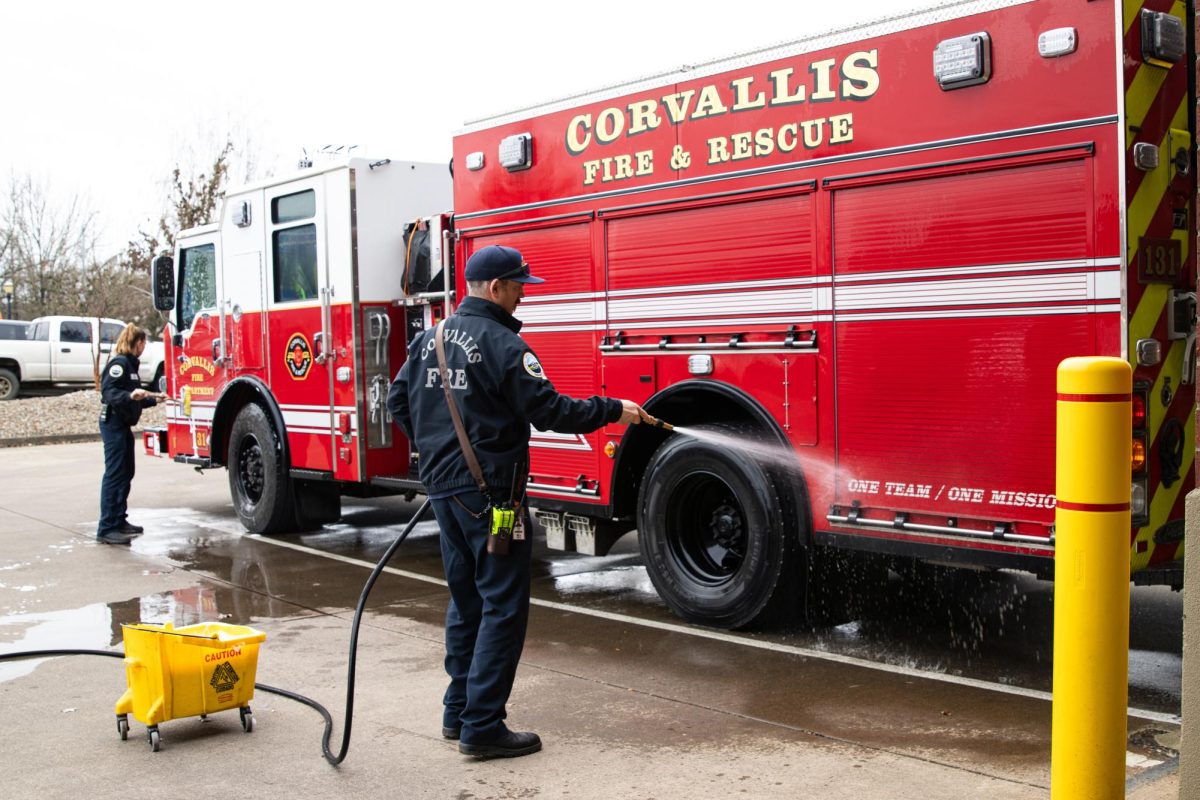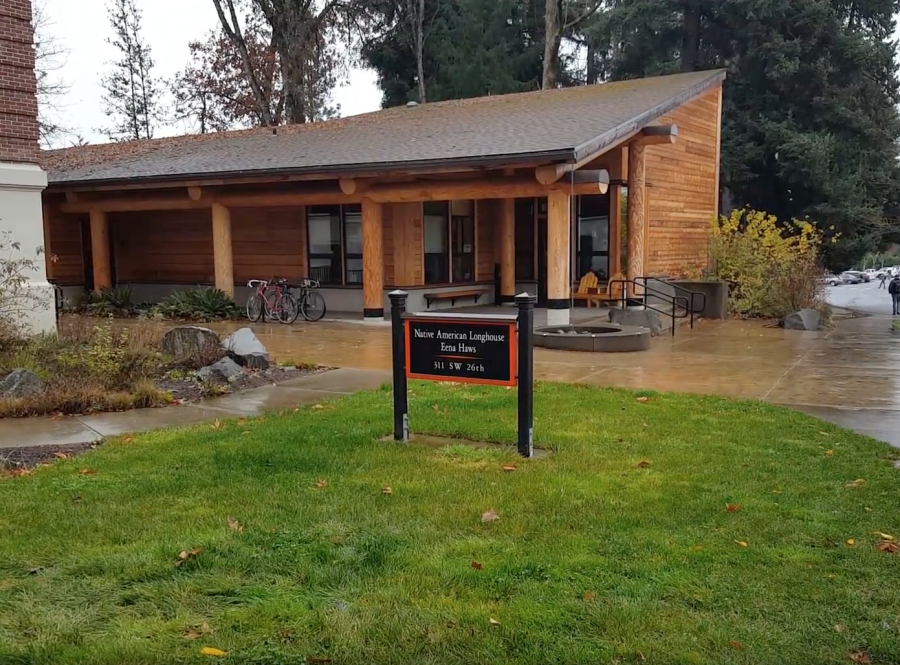OSU Native American Longhouse addresses North Dakota access pipeline
November 18, 2016
Controversy struck when The Dakota Access Pipeline Project began earlier this summer. This controversy is being addressed on campus.
On Tuesday, Nov. 15, The Native American Longhouse hosted a panel discussion from 12 p.m. to 2 p.m. regarding the North Dakota access pipeline. The panelists present for discussion primarily addressed informative issues involved around fracking and the pipelines that are being placed at Standing Rock. Issues such as environmental impact, social justice and the lack of respect for the Standing Rock’s indigenous tribe’s spiritual needs.
During the summer, The Dakota Access Pipeline Project began building an underground pipeline that would transport crude oil from North Dakota to Illinois. This pipeline happens to run across sacred lands and burial grounds of the Standing Rock Sioux Tribe. It also will run underneath the Missouri River, the primary drinking water source for the many tribes.
Luhui Whitebear, assistant director for the Native American Longhouse, traveled down and visited the North Dakota site where the protests were located at. She explains that though the pipelines are passing outside the reservations, the treaties had been violated.
“The area that the pipeline is crossing over is a large amount of what is known as unseated treaty land. So that means that when the government signed a treaty with the Lakota Nations they said that this will be their boundaries of their nations but those treaties were later violated through various acts of congress and other historic happenings,” Whitebear said.
Robert Figueroa, associate professor of philosophy and one of the panelist, mentioned several issues in terms of environmental justice work, such as whether or not the issue at hand promotes or aggravates social justice. He implored that both environmental and social justice issues really do go hand-in-hand. For him, placing pipelines within the sacred grounds was a clear violation of human rights and interests.
“Typically, we don’t ask cultures to remove their ancestors grave and to relocate them,” Figueroa said. “And to think that somehow indigenous people have a policy written up as to how to remove their dead and replace them, it’s already such a violation of fundamental human interests.”
With the recent presidential election, the panelist and those part of indigenous tribes are especially concerned about the outcome of the North Dakota Fracking Project and the further mistreatments that indigenous natives are experiencing. Allison Davis-White Eyes, OSU director of diversity and cultural engagement, believes that this is a time more, now than ever, to really readdress the nation’s priorities.
“I really think that this is an opportunity to really explore our national priority,” Davis-White Eyes said. “As we go through this transition (election) this will be a time for all of us in America to really take a pause and see what our national priorities are going to be. For the next four years that’s for sure, it will be important for all of us to pay attention and be informed.”


















































































![Newspaper clipping from February 25, 1970 in the Daily Barometer showing an article written by Bob Allen, past Barometer Editor. This article was written to spotlight both the student body’s lack of participation with student government at the time in conjunction with their class representatives response. [It’s important to note ASOSU was not structured identically to today’s standards, likely having a president on behalf of each class work together as one entity as opposed to one president representing all classes.]](https://dailybaro.orangemedianetwork.com/wp-content/uploads/2025/03/Screenshot-2025-03-12-1.00.42-PM-e1741811160853.png)
























